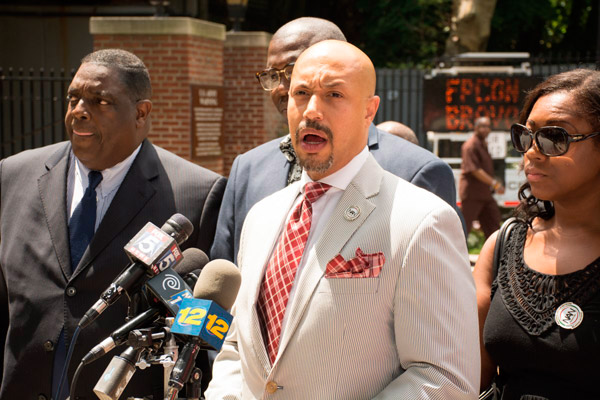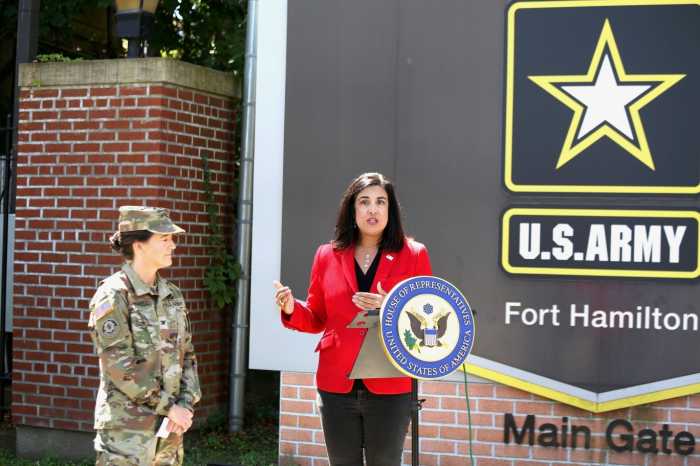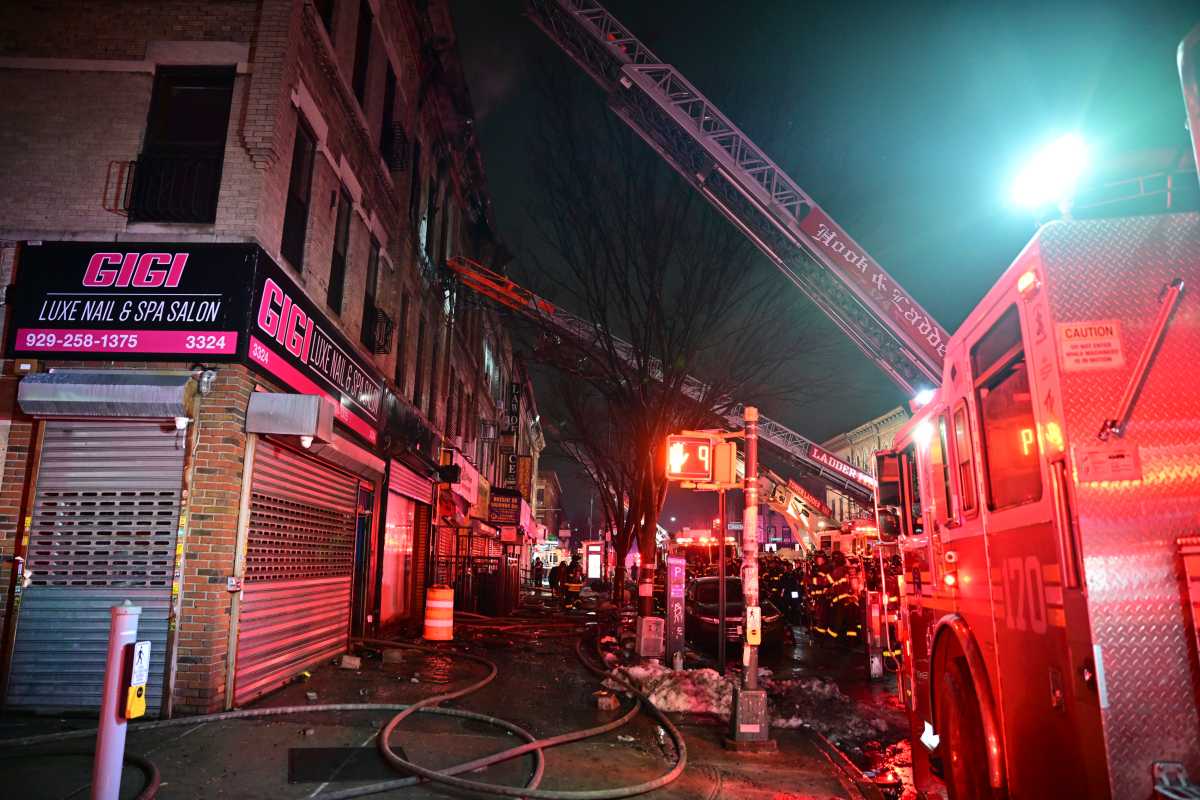Apparently, a road by any other name would spell defeat.
The U.S. Army has no plans to change a street named for a Confederate general stationed at Ft. Hamilton Army Base — despite pleas from black church leaders who say the name is racist.
Members of Rev. Al Sharpton’s National Action Network rallied in front of the 190-year-old Bay Ridge base on June 25 to denounce General Lee Avenue — named for Gen. Robert E. Lee — and call for a less racially charged moniker following the shooting death of nine black South Carolina churchgoers — including a state senator — allegedly by a white gunman who posted photos of the Confederate flag to social media. The activists said newly minted congressman Rep. Dan Donovan (R–Bay Ridge) could use his position to urge the Department of Defense to rename the road, but they say he isn’t taking Sharpton’s calls.
“The silence is deafening, but it’s not surprising — this is the same individual who did not think Eric Garner deserved justice,” said National Action Network Brooklyn chapter president Kirsten John Foy, referring to the grand jury empaneled by then-Staten Island district attorney Donovan that chose not to indict white police officer Daniel Pantaleo in the homicide of a black man who died while being arrested for selling loose cigarettes.
Donovan’s office did not immediately respond to a request for comment.
Lee was a decorated soldier in the U.S. Army who was stationed at Ft. Hamilton for five years before turning down command of the Union Army at the outbreak of the Civil War in favor of leading Confederate troops in his home state of Virginia. That choice supersedes any good he may have done prior to the Civil War, according to Foy.
“All that service went out the window when he decided to engage in treason,” Foy said.
The battle is personal for Sharpton’s daughters, who grew up under he shadow of the street sign.
“My sister and I had to go through here every day to visit our mother serving as a sergeant in the U.S. army,” said Dominique Sharpton, who said she was born in the now-closed Victory Memorial Hospital and graduated from Poly Prep in Dyker Heights. “What kind of message is a sign like this giving to our youth?”
The demand for the name change comes as part of a national sea change in attitudes towards symbols of the Conferderate States of America in the wake of the Charleston shooting. National chain stores such as Walmart and Target have yanked products featuring the Confederate battle flag from their shelves, and online sellers including eBay and Brooklyn’s own Etsy have banned rebel swag from their sites.
But the Army has no plans to alter streets or bases named for Confederate soldiers, according to a statement.
Rep. Hakeem Jeffries (D–Fort Greene) is also calling on the fort to nix Lee Avenue.
“Brooklyn is one of the most diverse counties in America, with sizable communities of color,” Jeffries said. “There is no good reason for a street to be named after an individual who led the Confederate Army in the fight to keep slavery and racial subjugation alive in America. It is my hope that we will do the right thing and find an appropriate local hero for whom the street can be renamed.”
Other federal politicians have not made their opinions clear. The National Action Network has not reached out to New York’s U.S. senators or Mayor DeBlasio about the street, Foy said.
There are 5,000 Civil War veterans interred at nearby Green-Wood Cemetery — including 74 Confederate soldiers and two Confederate generals, according to cemetery historian Jeff Richman.
Rev. Sharpton will hold a candlelight vigil at the fort’s entrance on Saturday evening, Foy said.























